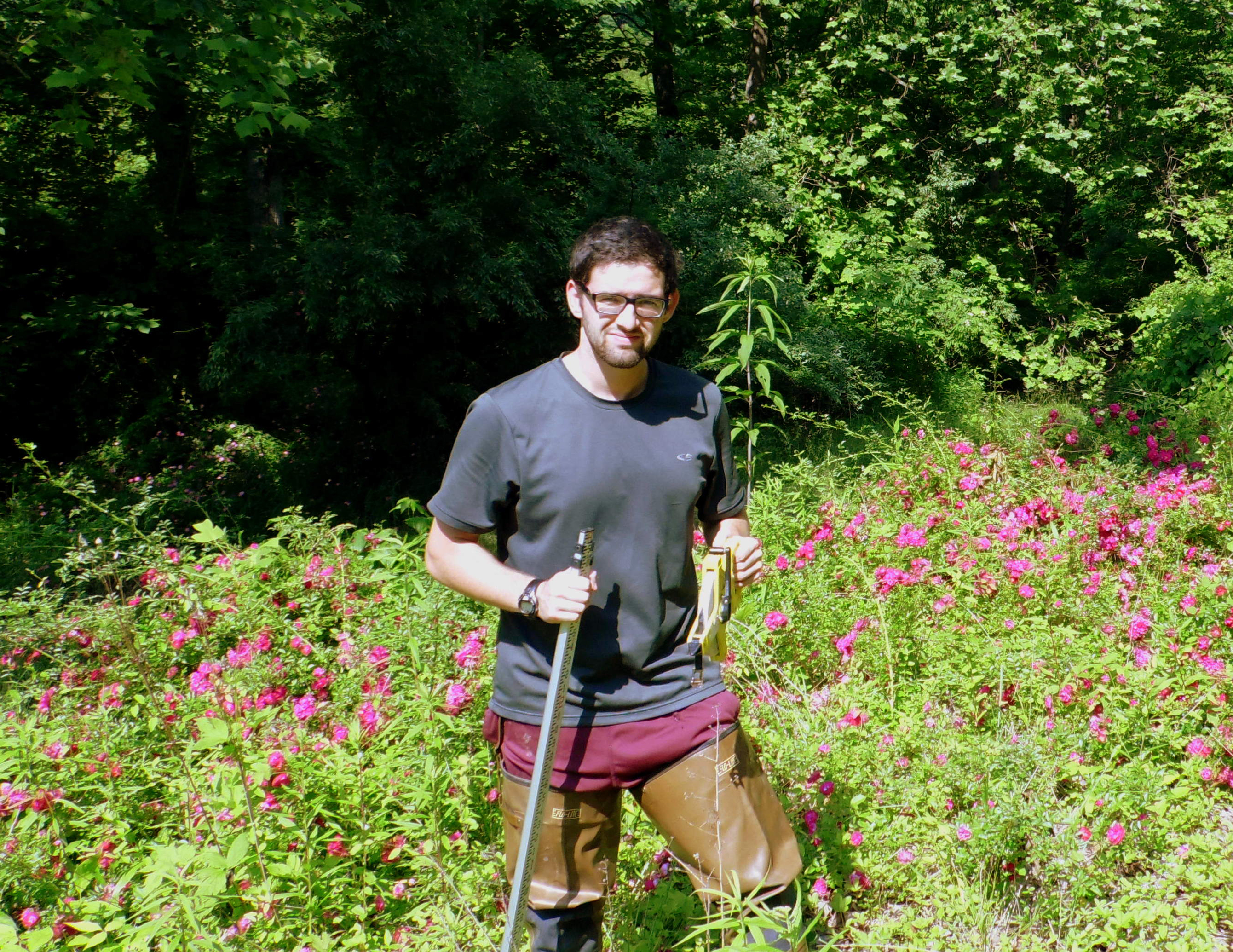Student explores water quality issues for summer undergraduate research project

With the heat of the summer in full force, images of ice-cold water or a dip in the swimming pool, lake, or beach come to mind.
But, for Matthew Razaire of Montclair, New Jersey, a senior majoring in biological sciences in the College of Science and participant in the Scieneering program, he’s spending the hot days contemplating water quality issues.
Working with doctoral student Kelsey Pieper in the lab of Leigh-Anne Krometis, assistant professor of biological systems engineering in the College of Engineering, Razaire is testing lead release in various components of piping in private water systems.
About 15 percent of Americans have their own sources of drinking water, such as wells, cisterns, and springs, according to the Virginia Household Water Quality Program in the Virginia Cooperative Extension.
“In public water municipalities, the water is treated and tested constantly for lead and various other contaminants. But in private systems, the responsibility to check for contaminants lies on the homeowner,” Razaire said.
To meet federal standards, piping components may only be tested with one type of water.
“But if you look at private systems, because the water isn’t generally treated prior to consumption, the water acidity can range greatly as well as different components of the water such as alkalinity,” Razaire said. “We are trying to test this material under water that people are actually drinking. We are taking data from Virginia private water samples, replicating those water types, testing the piping components, and seeing what happens to the metal under those conditions.”
High levels of lead in drinking water can lead to damage to the brain, kidneys, nervous system, and red blood cells while also impacting children’s mental and physical development.
As his first undergraduate research project, Razaire says he is excited to see what they find. He will present their results at the Virginia Tech Summer Undergraduate Research Conference on July 31 from 8 a.m. to 5 p.m. at the Graduate Life Center. Almost 200 students are expected to present their summer undergraduate research experiences. The Office of Undergraduate Research is coordinating the event.
“Matt has proven to be the perfect student for this interdisciplinary project,” said Krometis. “His background in biology and human health complements Kelsey’s engineering background, so that we can not only meet the project’s technical objectives, but translate the results into outreach information that makes sense to the typical homeowner.”
Razaire said this project has expanded his interest in water issues, by taking the knowledge he’s learned in his normal classes and applying it to real life.
“Undergraduate research is the real deal in the sense that you aren’t following a procedure that’s been premade for you – you have to design everything. You have to be prepared for the unexpected,” Razaire said. “It’s an application of what you’ve learned, and through that application, you learn a lot more because you are actually doing it instead of just reading about it. It’s been a lot of fun.”
Razaire said he hopes to continue working on this research project, or something similar, during the upcoming academic year.




